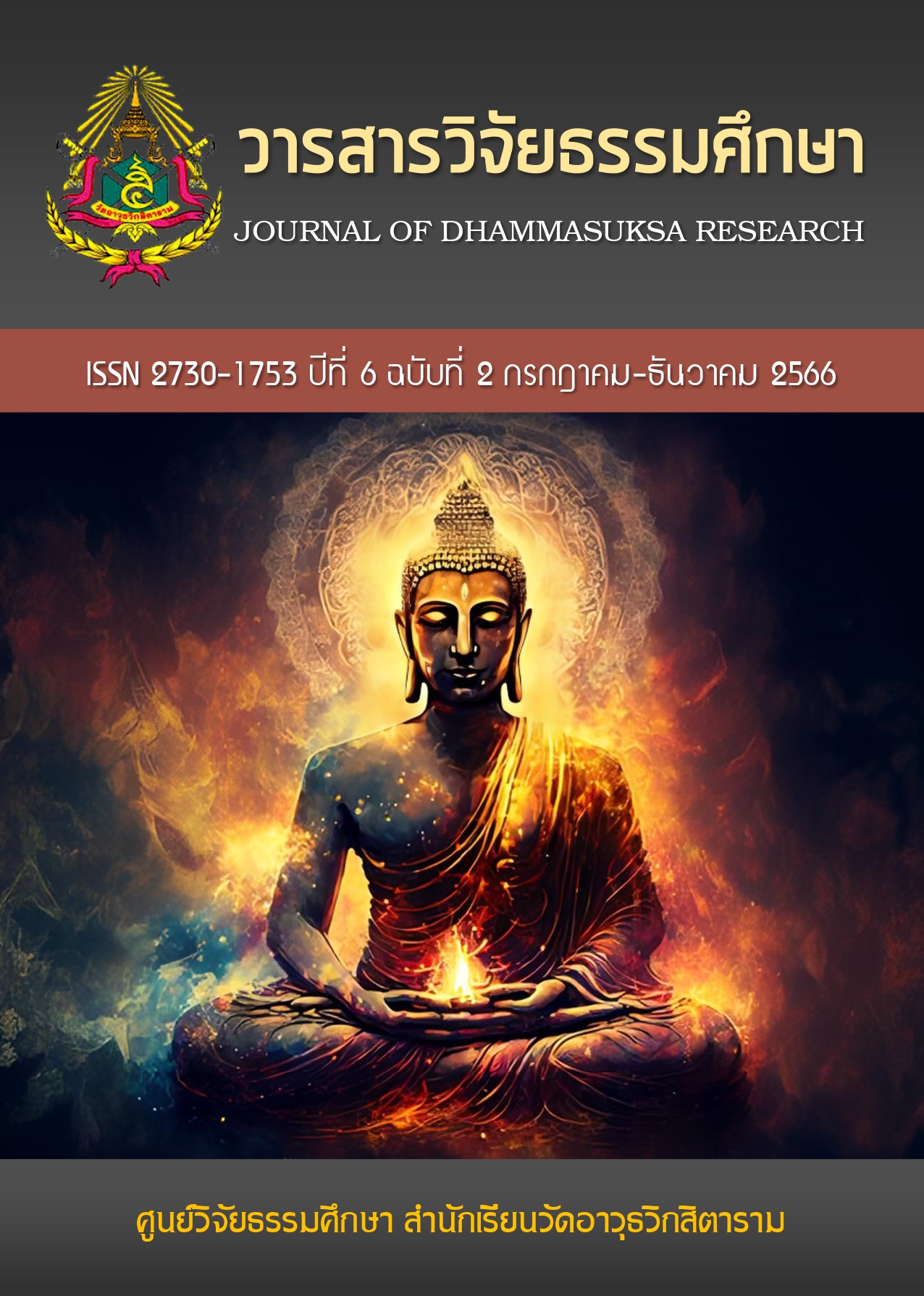Teaching and Learning Approach According to Tri- Sikkha Based on Moderate Postmodern Philosophy
Keywords:
Teaching and Learning Approach, Tri- Sikkha, Moderate Postmodern Philosophy ParadigmAbstract
Teaching and learning approach according to Tri-Sikkha is an approach in which Adhisila-Sikkha, Adhicitta-Sikkha, and Adhipanna-Sikkha are applied. The learning plan starts from Sila and meditation practice while knowledge learning is called Panna or wisdom. This is to use Tri-Sikkha according to the modern philosophy that believes in and accept the scientific thought, so Tri-Sikkha used in it is strict and aims at the learning achievements. As a result, the learners aim at good achievements and competition until they feel unhappy in learning. The Moderate Postmodern Philosophy is established to develop the quality of life, be flexible and relaxed, and accept a variety of opinions. Is it possible to apply Tri-Sikkha principle in teaching and learning? This philosophical study aimed at studying the teaching and learning according to Tri-Sikkha based on the Moderate Postmodern Philosophy. The result showed that Tri-Sikkha based on Moderate Postmodern Philosophy Paradigm had three meanings. 1) Adhisila-Sikkha, which was self-training to have precepts regularly, could be divided into 3 levels: including physical body level or normal physical body that did not break precepts and discipline; mind level or clam mind while practicing precents, and spiriture level or normal peaceful mind and having understanding why we practiced precepts. 2) Adhicitta-Sikkha, which was self-training to have calmness or meditation before using such meditation based on wisdom, could be divided into 3 levels: physical body level or clam physical body; mind level or clam and still mind; and spiritual level or attention to observe emotions while practicing each precept. 3) Adhipanna-Sikkha, which was self-training to have wisdom, could be divided into 3 levels: physical body level or brain quotient, e.g., knowledge and understanding in brain, mind level or emotional quotient; and spiritual level or moral quotient as well as morality and ethics. From classifying Tri-Sikkha for teaching and learning approach according to Tri-Sikkha based on the Moderate Postmodern Philosophy Paradigm, the results may be applied to fit to the learners’ age. At the primary learning, Tri-Sikkha should be taught at the physical body level, and the mind and spiritual level should be taught at higher level. Teaching and learning approach for learners with cognitive quotient should start from Adhi-panna. For learners with practice quotient, Tri-Sikkha may be re-ordered based on their preparedness and interest. It is suggested that Tri-Sikkha should be expanded to teaching and learning in each studying level.
References
กีรติ บุญเจือ. (2546). ปรัชญาอรรถปริวรรตของมนุษยชาติ เล่ม 6 ในชุดปรัชญาและศาสนาเซนต์จอห์น. กรุงเทพฯ: มหาวิทยาลัยเซนต์จอห์น.
______. (2545). ปรัชญาหลังนวยุค แนวคิดเพื่อการศึกษาแผนใหม่. กรุงเทพฯ: สำนักพิมพ์ดวงกมล.
กุลิสรา จิตรชญาวณิช. (2563). พิมพ์ครั้งที่ 2. การจัดการเรียนรู้. กรุงเทพฯ: สำนักพิมพ์จุฬาลงกรณ์ มหาวิทยาลัย
ทิศนา แขมมณี. (2563). พิมพ์ครั้งที่ 24. ศาสตร์การสอน.กรุงเทพฯ: สำนักพิมพ์จุฬาลงกรณ์มหาวิทยาลัย.
พระธรรมปิฎก. (ป.อ. ปยุตโต). (2538) การศึกษาเพื่อสันติภาพ. กรุงเทพฯ: สหธรรมมิก.
ยุทธภัณฑ์ พินิจ, กีรติบุญเจือ และรวิช ตาแก้ว. (2564). จริยธรรมคริสเตียนกับปรัชญาหลังนวยุคสายกลาง.วารสารสังคมศาสตร์และมานุษยวิทยาเชิงพุทธ, 6(5), 157-170.
สมาคมผู้ปฏิบัติ. (2545). คั้นออกมาจากศีล. กรุงเทพฯ: ฟ้าอภัยจำกัด.
สัมมาสัมพุทธสาวก. (2526). สมาธิพุทธ. กรุงเทพฯ : มูลนิธิธรรมสันติ.
สำนักคอมพิวเตอร์ มหาวิทยาลัยมหิดล. (2550). พระไตรปิฎก ประมวลคัมภีร์ และแหล่งค้นพุทธศาสตร์ ฉบับคอมพิวเตอร์ ( BUDSIR VI for Window ). CD-ROM.
IQ EQ MQ, สืบค้นเมื่อ ธันวาคม, 22, 2565, จาก hppts://www.trueplookpanya.com.
Downloads
Published
How to Cite
Issue
Section
Categories
License
Copyright (c) 2023 Journal of Dhammasuksa Research

This work is licensed under a Creative Commons Attribution-NonCommercial-NoDerivatives 4.0 International License.



